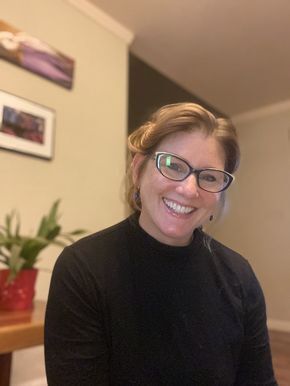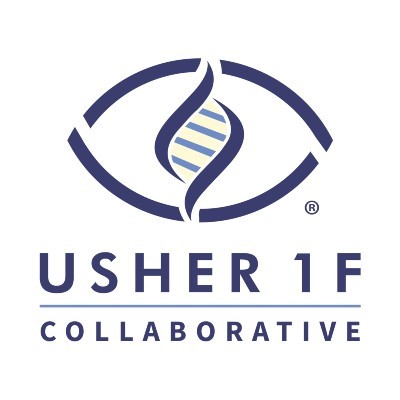
Jen Phillips, PhD
Interview with Jen Phillips, PhD
What led you to a career in neuroscience research?
Since my undergraduate days, I have been completely smitten with the field of developmental biology. The complex, elegant orchestration of molecular, cellular, and genetic alchemy that converts potential into reality seems a little bit like magic, and understanding how it works has transformed the way I think about life. Developmental neurobiology, particularly of the visual system, has been a passion since I first learned how our eyes develop and function. It was this enduring interest that informed my choice of PhD programs and illuminated the path to my current position in the Westerfield lab studying Usher syndrome.
Can you explain how your work applies to Usher Syndrome?
Our USH research began with investigating what goes wrong in zebrafish eyes and ears when Usher proteins aren’t functional. Over the past two decades we have generated and characterized zebrafish models of nearly all the known types of USH.
We began our work on USH1F about 8 years ago, with funding from the Usher1F Collaborative. We used CRISPR/Cas9 gene editing to create several strains of zebrafish with altered ush1f genes that would help us study the role of the protein that’s compromised in USH1F, protocadherin-15, and give us a system in which to test potential therapies for the vision loss. Our ush1f zebrafish have taught us a great deal about what goes wrong in the light-sensing cells of the retina, called photoreceptors, when protocadherin-15 function is compromised.
We’ve learned enough from these models to have a good sense of what types of therapies might be effective in the fish, and we hope that some of the treatments we’re testing will translate to a medical intervention for people losing their sight from USH. We’ve also discovered a few treatment options that definitely *don’t* work, which sounds like a bummer but is actually a useful, actionable result. Understanding why things fail is a terrific way to learn what could succeed!
What is your favorite part of your job?
I adore my job, so it’s impossible to pick just one favorite thing about it. I am a huge nerd, so being able to just do science-y things all day is a dream come true. Having the tools and knowledge to ask relevant questions and use the answers as stepping stones toward a greater understanding of a complex molecular process is a powerful feeling that brings me a lot of joy.
Working with research students is something I particularly love about the academic research life. Students bring a lot of energy and inspiration to the lab. Our students have been contributing authors on our scientific publications, and many have won awards for their USH research projects. I’m so proud of all of them! It’s delightful to watch them grow as researchers and scientific thinkers, and I love the fact that every student who spends time in our lab will take a new awareness of USH--and the people living with it--out into the world with them when they move on.
Finally, the connections I’ve made within the USH community are an enormous ‘perk’ of this job. On any given day when I’m immersed in the molecular minutia of a particular experiment, my awareness of who the work is ‘for’, and the collective hope for progress that I hold in my hands, never leaves me. Knowing these families-- the faces of their children, their hopes, triumphs, and worries-- gives my work more dimension and purpose, and I’m deeply grateful for that perspective.
As a woman, were there any extra challenges pursuing your PhD?
I gave birth to both my children while in graduate school, which did indeed present some unique challenges. I was fortunate to have supportive supervisors, access to quality childcare, and a great co-parent in my husband, Jerry, but experiences like pumping milk in the janitor’s closet between seminars and taking experiments home with me in an ice bucket so I could pick up my babies from daycare on time are among my indelible memories of walking that work-life tightrope. Academia isn’t always the easiest place to balance work and family. Being a present and involved mom, juggling my husband’s career trajectory (he’s an eye doctor) with my own, and caring for a parent with Alzheimer’s have all required different choices than I might have made under other circumstances, but I’m extremely happy with where I’ve ended up.
What do you enjoy doing in your spare time?
Outside of work in the Westerfield Laboratory, I’m a member of the University of Oregon’s Committee that oversees the research animal welfare throughout our institution (IACUC) and I serve on the Institute of Neuroscience DEI Committee.
Once or twice a year, I co-teach a graduate seminar on Inclusivity in STEM, which includes a unit on improving accessibility in STEM classrooms and workspaces. Jessica Chaikof has been an invaluable resource on this topic, and I’m so appreciative of all she’s taught me.
Off campus, family time is precious to me. We love to travel, but also enjoy cooking, card games, and binge-watching Netflix together. We also enjoy watching American Football (Go Ducks!) and Tennis. Sleep deprivation from following the Australian Open is in full swing as I write this, and one of our post-retirement goals is to travel to Melbourne for this tournament.
I’m fortunate to live in a beautiful area with access to many different activities. My work is quite sedentary, so when I’m out of the lab I like to be on the move, trail running, swimming, gardening, and walking the neighborhood hills with my two Golden Retrievers. I also attend ballet, Pilates, and kickboxing classes several times a week.
